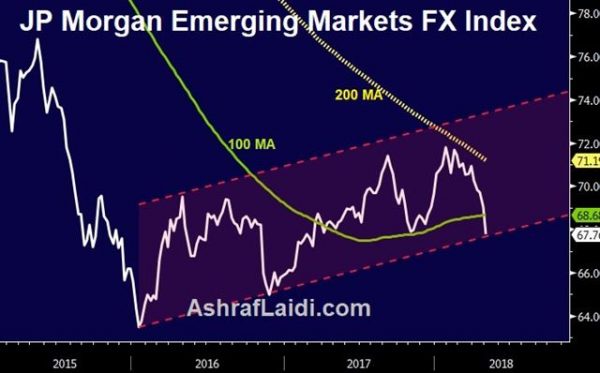The Fed was the focus on Wednesday, at least for a short period, but underlying moves for the dollar stem from half-a-world away. AUD edged out USD as the top performer on the day while the euro lagged. Australian trade balance is due up next. Our DAX30 short was stopped by 15 pips (before the index headed lower) for 300 pt loss. The DOW30 short was closed for 450-pt gain.
The FOMC decision was a one-hour event in the sense that it moved markets for a grand total of one hour. The initial move was lower in the dollar and then it rebounded completely. The statement added two nods to the symmetric 2% inflation target and omitted a line saying that the economic outlook had strengthened. The symmetric reference is a subtle warning that the Fed will see 2.5% inflation in much the same was as 1.5% inflation in that it won’t immediately react. It’s a signal that 2% isn’t the ceiling of tolerable inflation.
At the same time, that’s something many FOMC members have emphasized recently and it’s no surprise to the market. It didn’t change the markets 96% implied probability of a June hike. From there it will continue to be all about economic data, which is in heavy supply for the remainder of the week.
So why the US dollar rally? Aside from the themes about rate differentials, jitters and growth that we’ve written about extensively, there are flows. Big flows at the moment are emanating from emerging markets where trouble is brewing.
Argentina’s peso fell 3% Wednesday despite a panicky 3 percentage point hike from the central bank and massive FX intervention. The Turkish lira fell 2% and the Russian ruble continues to struggle.
Emerging market money tends not to be overly discriminating and problems in one place can quickly become problems everywhere. Higher US rates have changed the equation for many investors and trickle can become a flood overnight.
In developed markets, the Australian dollar continues to struggle but has so far held Tuesday’s lows. It could get some help at 0130 GMT in the March trade balance report. The consensus is for a healty $865 million surplus.

